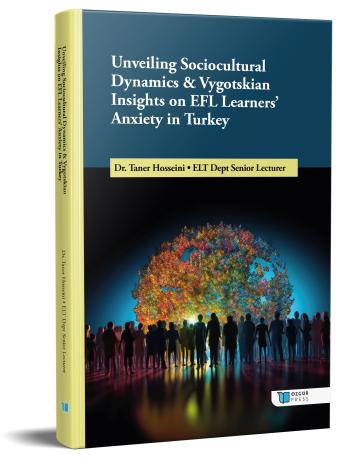
Unveiling Sociocultural Dynamics & Vygotskian Insights on EFL Learners' Anxiety in Turkey
İndir
Özet
In this study, foreign language anxiety (FLA) has been considered as an effect caused by sociocultural factors, which EFL students experience in a Turkish setting. As Horwitz holds, FLA is a distinct complex construct of self-perception and beliefs arising from the uniqueness of the language learning process. Likewise, as stated by Spielberger (1983) anxiety is nothing but the subjective feeling of tension, apprehension …associated with the arousal of the autonomic nervous system, whereas Scovel (1978) states anxiety is an ambiguous affective variable to be made clear by distinguishing between debilitative and facilitative anxiety.
This research approaches FLA as a variable derived from the sociocultural theory (SCT) of Vygotsky (1978). Based on SCTof Vygotsky, this study aspires to find out whether or not the sociocultural factors (SCFs) such as attitudes and beliefs (self-regulation, scaffolding, peer interaction, feedback, and private speech) inflict anxiety on EFL learners in a Turkish setting. To investigate how those factors interplay with students’ anxiety and achievement, a questionnaire of anxiety called FLCAS by Horwitz et al. (1986) was administered to EFL students at three different universities in Istanbul, Turkey. The FLCAS was first given to 370 students from three different universities to fill it out on a psychometric Likert Scale, but only 273 of the population were picked out for the thesis aim since the downsized population had fully completed the questionnaire with the information needed.
In order to ascertain and validate if the pertinent factors of SCFs could be defined to function as potential anxiety-provoking factors in the FLCAS, factor analysis (FA) was employed using SPSS version 25.0. What’s more, extracting the reliable factor loadings of the SCFs on FLCAS proved that the SCFs could be designated as a new dimension for the questionnaire.
The findings were reported to indicate that there exists a confluently significant relationship between SCFs and language anxiety in a Turkish environment.
The SCFs and students’ achievement, as well as TA caused by the SCFs, are negatively correlated holding negative statistics with an exception for the peer interaction (PI) not holding a significant p-value. Furthermore, it became evident that students’ belittling attitude of their foreign language competence would make them experience English language learning deficiency due to being exposed to the vortex of potential xenoglossophobia.
The negative or downhill correlation is indicative of the fact that once one of the SCFs escalates both TA and EFL learners’ achievement would nosedive.

